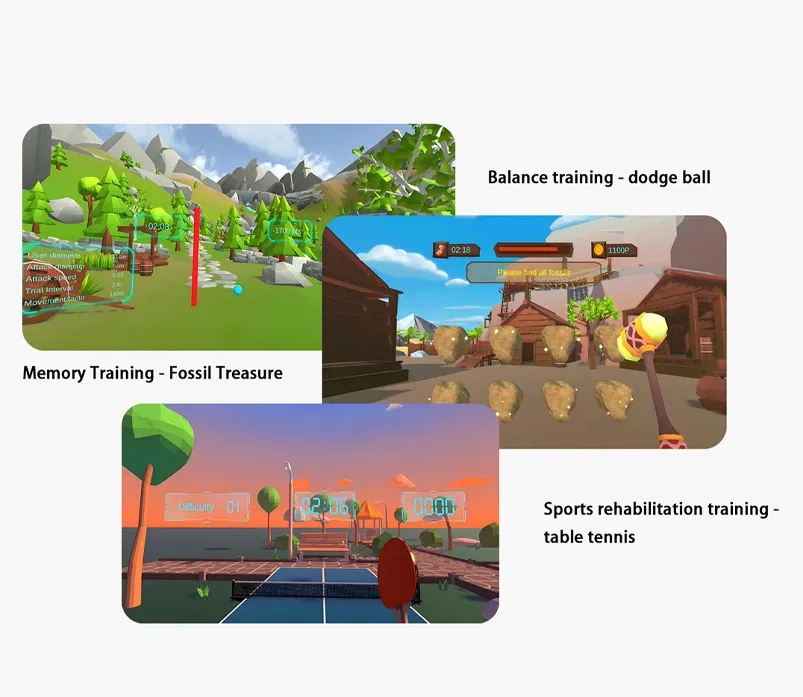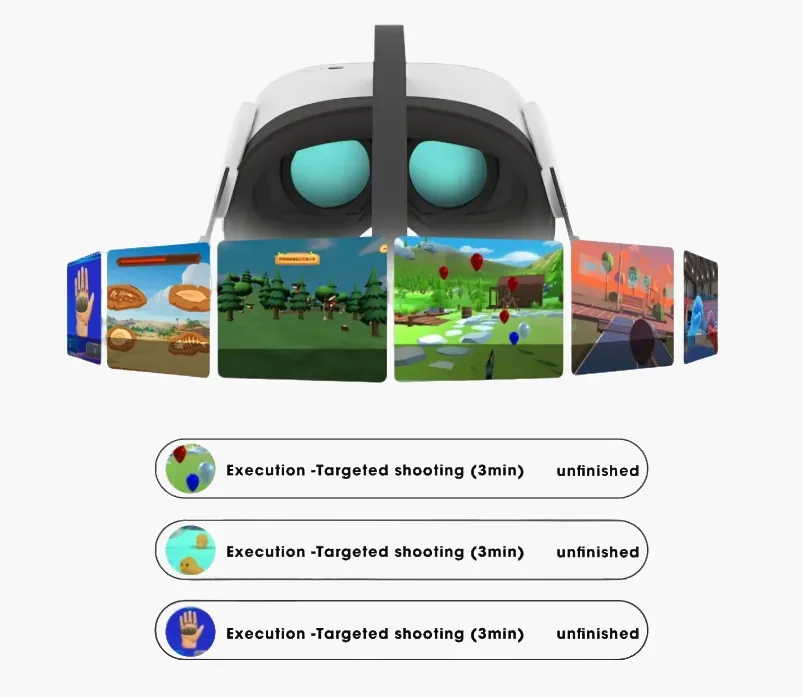
Advancing analyses demonstrates that immersive digital environments strategy can markedly refine the experiences of individuals diagnosed with cognitive decline. By placing them to comforting scenes, VR delivers a novel avenue for neural stimulation, psychological balance, and interpersonal communication. Diverse evaluations have established that VR therapy can alleviate excitability, anxiety, and melancholy in dementia sufferers while also elevating their retention, concentration, and conversational capabilities.
- VR permits patients with dementia to retrace cherished memories through interactive simulations.
- Furthermore, it can deliver a reliable and caring space for community involvement, building a notion of union and adherence.
- Professionals assert that VR therapy has the likelihood to transform dementia treatment by giving new and creative avenues to manage the hard complications faced by clients affected by this affliction.
Innovative Tech Treatments for Alzheimer's
Developing online remedies are exhibiting benefits in the domain of mental improvement for patients affected by Alzheimer syndrome. These interfaces employ electronic devices to strengthen brain capacity and theoretically delay the growth of the syndrome. Playful drills, personalized feedback, and mental training are some samples of procedures being considered in this dynamic sector. While inquiries are advancing, digital therapeutics provide a alternative course for enhancing the quality of those living with neurodegenerative Alzheimer type.Novel VR Techniques for Alzheimer's Intervention
Concerning users experiencing Alzheimer's condition, the persistent diminution of brain power and brain functions can notably weaken their capability to communicate with the surrounding environment. This impairing state often results in detachment, confusion, and a diminished self-concept. Up-to-date breakthroughs in virtual reality technology deliver a groundbreaking prospect to mitigate these difficulties by generating immersive realities that can stimulate the brain and invigorate cognitive function.
Virtual scenario worlds configured specifically for Alzheimer's individuals can carry them in recognizable spots, such as their youthful dwelling or a treasured public park, invoking positive memories and mitigating anxiety. Through interactive exercises, these virtual universes can also stimulate cognitive abilities like recall, awareness, and logical processing.
The possible gains of virtual reality in Alzheimer's treatment are substantial. Early observations have revealed encouraging results, with individuals experiencing improvements in cognitive performance, mood, and overall quality of life. As this innovation advances, it holds the key to remodeling the way we approach Alzheimer's disease, granting a new pathway for care and reinforcement.
Virtual Reality Reminiscence for Alzheimer's
Reminiscence therapy is an established technique used to advance cognitive function and psychological wellness in individuals with Alzheimer's disease. This established form of therapy involves inviting patients to relate past experiences, often through discussion. However, a groundbreaking approach is emerging: VR-mediated reminiscence therapy.
This immersive platform utilizes virtual reality headsets to immerse patients in authentic environments that recall memories from their past. By participating these digital reconstructions, individuals with Alzheimer's can bond with their past in a influential way.
Can VR Help Fight Dementia? Exploring the Impact on Memory and Cognitive Function
Virtual reality (VR) is emerging as a encouraging technology in the fight against dementia, making available revolutionary ways to invigorate memory and cognition. By building immersive environments, VR can empower individuals with dementia remember memories, take part in meaningful activities, and develop cognitive competencies. Studies have shown that VR interventions can generate marked improvements in memory recall, attention, and spatial awareness. Moreover, VR provides a secure and positive space for individuals with dementia to explore, reducing feelings of isolation and stress.
- Furthermore, VR can be tailored to individual needs and preferences, facilitating greater levels of engagement.
- Acknowledging the opportunities of VR, progressive research is needed to fully understand its long-term benefits in dementia care.
Renewing Memories, Enhancing Relationships: VR for Alzheimer's Social Health
Augmented immersive environments is emerging as a revolutionary mechanism in the sphere of dementia care. By designing engaging and social atmospheres, VR has the ability to spark memories, foster social interaction, and enhance the overall quality of life for participants living with Alzheimer's. Notably a key influential aspects of VR is its ability to carry users to cherished scenes and journeys from their past. Whether it's a stroll in a childhood home or a illustration of a beloved holiday, these virtual journeys can summon happy memories and enhance cognitive power. Furthermore, VR can support social interaction by uniting individuals with others who share similar preferences. This can be particularly rewarding for people with Alzheimer's who may find it difficult with traditional social participation. By hosting a safe and captivating virtual space, VR can ease feelings Cognitive Rehabilitation of isolation and loneliness, which are common among users living with Alzheimer's. Overall, VR holds immense promise for innovating the lives of participants with Alzheimer's by restoring memories, rebuilding connections, and improving their quality of life. As technology continues to mature, we can expect even more revolutionary applications of VR in the field of dementia care.Applying Cognitive Training: Harnessing VR for Alzheimer's Therapy
Artificial reality platforms is rapidly emerging as a disruptive tool in the realm of cognitive training, particularly for persons living with Alzheimer's disease. By immersing patients in interactive and engaging virtual environments, VR-based interventions can boost cognitive functions such as memory, attention, and problem-solving. These games commonly incorporate elements of storytelling, exploration, and social interaction, making the training process more enjoyable. Studies have shown that VR-based cognitive training can lead to noticeable improvements in cognitive performance, hypothetically delaying the progression of Alzheimer's symptoms. Moreover, VR provides a safe and controlled environment for patients to practice new skills and enhance their confidence.
- Game-enhanced procedures in VR training can make it extremely immersive and fun for users with cognitive difficulties.
- VR simulations can offer realistic scenarios that drive and improve cognitive functions.
- Personalized VR experiences can cater to custom requirements and techniques.
Investigating VR Benefits in Dementia Management
Immersive artificial domains offer a unique and beneficial avenue for subjects undergoing dementia. These platforms can emulate familiar environments, allowing those affected by cognitive decline to access cherished memories and promote a sense of ease. By tackling the burdens of dementia, VR contexts have the ability to elevate quality of life for both individuals and their caregivers.
- Investigations indicate that VR strategies can noticeably impact cognitive function, psychological well-being, and even kinetic abilities in individuals with dementia.
- Moreover, VR creates a safe and organized environment for discovery, reducing the risk of trauma.
- Additionally, VR can enhance social links by allowing individuals with dementia to socialize in artificial activities with others.
Innovative VR for Alzheimer's Early Recognition and Therapy
cognitive Alzheimer's illness shows a elaborate puzzle, often being undiagnosed in its early stages. Despite this, virtual reality (VR) is unfolding as a cutting-edge tool for precocious diagnosis. Through immersive environments, VR can assess cognitive competence in ways that traditional methods are inadequate to. This capacity allows for timely intervention strategies, potentially reducing disease progression and enhancing the quality of life for subjects with Alzheimer's.
- Immersive virtual tests evaluate cognitive functions like recall and focus in protected settings.
- Bespoke VR applications facilitate interactive mental activity for patients.
- VR worlds offer empathetic environments for interaction among those affected by Alzheimer's.
VR as a Medium for Dementia Engagement and Social Participation
{In the realm of dementia care, innovative technologies are emerging to upgrade the lives of individuals living with this challenging condition. Virtual reality (VR) is one such solution that holds immense capacity for strengthening interaction and communication for dementia sufferers via VR. By offering absorbing computer-generated environments, VR can enhance cognitive function, reduce behavioral issues, and ultimately improve the overall well-being of subjects managing dementia.
VR experiences aligned with dementia treatment goals can range from retrospection therapy sessions that transport users back to familiar places and times, to interactive games that promote social interaction and cognitive practice. Furthermore, VR has the potential to connect dementia patients with family and friends, regardless of physical isolation, fostering a sense of connection.
- VR can encourage in reducing agitation and anxiety by providing a calming and engaging environment.
- Examinations have shown that VR interventions can lead to improvements in cognitive function, mood, and social interaction in subjects coping with dementia.
- As technology continues to progress, we can expect even more innovative and efficient
